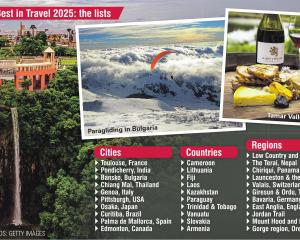
Centre-left Labor held a decent lead going into the campaign after nine years in opposition, but recent polls showed Prime Minister Scott Morrison's Liberal-National government narrowing the gap in the final stretch of a tough, six-week campaign.
A Newspoll survey by The Australian newspaper out on election day showed Labor's lead dipping a point to 53-47 on a two-party-preferred basis against the ruling coalition, largely in line with other election polls.
In-person voting at polling booths in suburban schools, beachside pavilions and outback halls opened at 8am on Saturday (local time) and will close at 6pm.
Morrison and Opposition leader Anthony Albanese made whistle-stop tours across marginal seats in the final two days of a campaign dominated by rising living costs, climate change, national security and integrity.

As Labor focussed on spiking inflation and sluggish wages growth, Morrison has made the country's lowest unemployment numbers in almost half a century the centrepiece of his campaign's final hours. Inflation has risen twice as fast as wages, keeping real income in the red.
"People are really struggling and this government is totally out of touch," Albanese told ABC television on Saturday. "This country cannot afford three more years of the same ... give Labor a crack."
Morrison said Labor's policies will put further upward pressure on inflation and widen deficits.
"That only makes more pressure on cost of living and ultimately means higher taxes because when (Labor) can't manage money, they always come after yours," he told Channel Nine.
While the economy is a key issue, several so-called "teal independents" are challenging key Liberal-held seats, campaigning for action on climate change after some of the worst floods and fires to hit Australia. Read full story
In the outgoing parliament, the Liberal-National coalition held 76 of the 151 lower house seats, while Labor held 68, with seven minor party and independent members.
Voting is compulsory and initial results should be known by Saturday evening, although the Australian Electoral Commission has flagged a clear winner may not immediately emerge if it is a close contest due to the time required to count about 3 million postal votes.
More than half of votes had already been cast by Friday evening, with a record 8 million early in-person and postal votes, the Australian Electoral Commission said.
A time difference of two hours between the east and west coasts means voting centres in Western Australia will still be open as the initial counts start coming from the populous east coast states, which have 124 of the lower house's 151 seats.












